Course Instructors
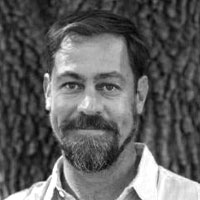
Dr. Jeremy Brawner
Assistant Professor
UF/IFAS Plant Pathology
Forest Health Genetic Resources, Quantitative Genetics and Genomics of Disease Resistance
Dr. Brawner’s research program is focused on developing disease tolerant tree crops and his extension program delivers these varieties to a range of stakeholders. He work with forest and tree crop managers in Florida, the US, and abroad to develop more efficient disease screening and breeding programs. The goal of his research program is to develop disease screening systems and breeding programs that facilitate resistance gene selection into breeding programs. Many projects represent multi-disciplinary collaborations developed to have industrial and development outcomes, both domestically and abroad.
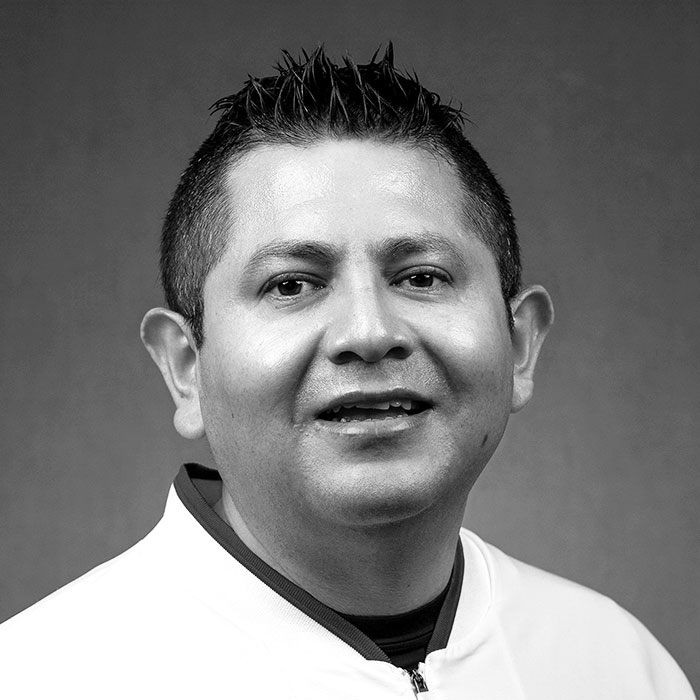
Dr. Diego Jarquin
Assistant Professor
UF/IFAS Agronomy
Integration & Application of AI & Omics in Plant Breeding
One of the biggest challenge of the humanity is to ensure the current and future food supply chain of a growing population in a world that is facing more often and extreme environmental variations. The contributions of Dr. Jarquin research program are relevant to the society because these are helping to the development of improved (more productive, resistant to biotic and abiotic stress, etc.) genotypes by the integrating artificial intelligence (AI) methods and multi-omics analyses in plant breeding. Dr. Jarquin's program is focused on the development of interpretable AI methods and related disciplines (biostatistics, quantitative genetics, and modeling) that can be applied to large multi-omics data sets for providing solutions to complex plant breeding and plant systems biology questions. More specifically, these developments are oriented to find new ways of driving genetic improvement and biological insights designing and optimizing methods for plant breeding, leveraging information from multiple facets of plant biology—physiology, agronomy, and biochemistry to quantitative genetics and multi-omics (genomics, transcriptomics, proteomics, metabolomics and high throughput phenotyping), and provide novel solutions to unravel the biological basis of complex traits for plant breeding programs.
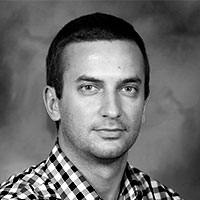
Dr. Esteban Rios
Assistant Professor
UF/IFAS Agronomy
Forage Breeding and Genetics
Dr. Rios research program meets a critical need for society as the demand for animal-based products is exponentially growing, particularly in subtropical and tropical regions where population growth is more pronounced. The U.S. is the world's largest beef producer and cattle production accounts for more than $78 billion in sales annually. However, feed represents the highest cost component of beef production and accounts for 40-60% of production costs. The interest in utilizing improved forages in pastures, versus grain-fed approaches, is driven by economic factors, followed by environmental and social consciousness. Improved forages contribute to reducing greenhouse gas emissions from the livestock sector, in addition to sequestering carbon in soil to mitigate climate change. My specialization in plant breeding and genetics, quantitative genetics, and forage production are the foundation of my research questions to improve yield, nutritive value, abiotic and biotic stress tolerance in forage species. I have two major goals in my program: i) contribute to the livestock and agricultural industries by creating and releasing cultivars with higher yield and quality, and greater resilience to abiotic and biotic stresses, and ii) conduct theoretical and applied research in quantitative genetics and genomics to make the plant breeding process more efficient.
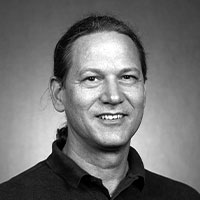
Dr. Charlie Messina
Professor
UF/IFAS Horticulture Sciences
Predictive Breeding
Charlie Messina is Professor in the Department of Horticultural Sciences at the University of Florida. His teaching and research program focuses on how to harmonize crop improvement and AI efforts for agricultural systems to regenerate the environment while providing nutrition security, improve human health and adapt to climate change. His team evaluates and applies novel prediction methods and systems within operational breeding programs.During his tenure at Corteva Agriscience he contributed to the development of drought tolerant maize in the US and Brazil, which is now grown in >10MM acres.
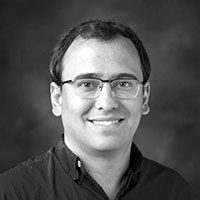
Dr. Marcio Resende
Assistant Professor
UF/IFAS Horticulture Sciences
Sweet Corn Breeding and Genomics
Dr. Resende has two active breeding programs working on the development of sweet corn inbreds and potato varieties that are aimed at addressing the concerns of the Florida growers. He is also interested in statistical genomics and quantitative genetic research that can increase genetic gains, increase efficiency and/or accelerate the breeding program. His lab has a strong research and training component in different 'omics' with an applied goal. Current projects include the use of metabolomics to predict food sensory panels, the development of genomic selection models to improve breeding and the analysis of transcriptome information for the detection of eQTLs.
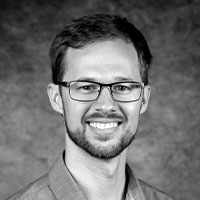
Dr. Vance Whitaker
Professor
UF/IFAS Horticulture Sciences in GCREC
Strawberry Breeding
Dr. Whitaker develops strawberry varieties for Florida. His breeding program is enhanced through genetic research and through collaborations with the GCREC faculty team and Florida industry. Dr. Whitaker works closely with Florida Foundation Seed Producers, the Florida Strawberry Growers Association and Ekland Marketing Company to license and market UF/IFAS varieties in Florida and around the world.
Dr. Whitaker conducts an applied research program in breeding and genetics, using both field and lab techniques. His research program is primarily aimed at the genetic characterization of important traits in strawberries and informing methods and strategies for developing newer and better cultivars. Few traits in cultivated strawberry are controlled by single genes, due to the complex genetics of this species. Therefore, the approaches of quantitative genetics are important for determining the types of genetic variance that contribute to economically important traits and how selecting one trait influences another trait. However, for some traits that are controlled by one or few genes, breeding is being enhanced through DNA marker technology.
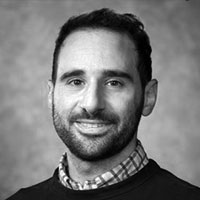
Dr. Caio Canella Vieira
Assistant Professor
University of Arkansas
Soybean Breeder
Dr. Caio Canella Vieira is an Assistant Professor of soybean breeding at the University of Arkansas, currently leading the University’s soybean breeding program. Before joining the University of Arkansas, Dr. Canella Vieira obtained his master's and Ph.D. in Plant Breeding, Genetics, and Genomics at the University of Missouri. He was involved in the development and release of over 20 soybean cultivars in Missouri and led the modernization of the soybean breeding program by prioritizing the use of data analytics and prediction models. His program in Arkansas targets the development and release of high-yielding conventional and herbicide-tolerant soybean cultivars with broad biotic and abiotic stressors tolerance, as well as improved seed composition. The program puts efforts into identifying and incorporating economic-important traits from genetically diverse accessions into modern, high-yielding genetic backgrounds. Substantial efforts are also made on maximizing the efficiency of the soybean breeding program through the implementation of genomic prediction and high-throughput phenotyping strategies throughout all stages of the pipeline.
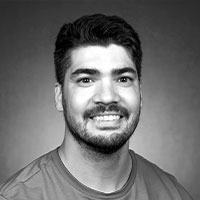
Dr. Claudio Fernandes
Postdoctoral Associate
UF/IFAS Agronomy
Forage Breeding and Genetics
Dr. Claudio Fernandes is a post-doctoral research scientist at the University of Florida/IFAS Agronomy Department, specializing in plant breeding and genetics. He holds a Ph.D. in Plant Breeding and Genetics from the Universidade Federal de Lavras, where he worked on developing genotype by environment models for longitudinal datasets and incorporating enviromic data into genomic selection models for highly accurate results. His current research involves performing quantitative genetic analysis in bermudagrass to make decisions on cultivar releases and develop a panel of molecular markers. Additionally, he studies population structure and perform GWAS in the United States Department of Agriculture (USDA) collection. Along with this, he mentors graduate students and serve as a teacher assistant for data analysis and visualization using R language.
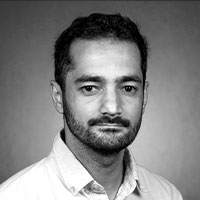
Dr. Marco Antonio Peixoto
Postdoctoral Researcher
UF/IFAS Horticulture Sciences
Sweet Corn Breeding and Genomics
Dr. Marco Peixoto is a quantitative geneticist who specializes in bridging statistical and genetic methods to enhance plant breeding programs. He is dedicated to developing algorithms and using advanced techniques to optimize quantitative traits and improve breeding programs. More specifically, Dr. Peixoto is applying genomic methods to sweet corn hybrid prediction, as well as using simulations tools and real data to harness long-term genetic gains while circumventing the decrease of variance by controlling inbreeding rates via cross usefulness prediction and mating plan optimization.
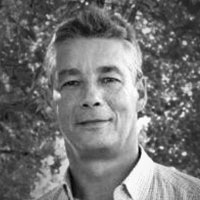
Dr. Luis Osorio
Biological Scientist IV
UF/IFAS Horticulture Sciences in GREC
Strawberry Breeding
Dr. Osorio is a research member of Dr. Whitaker’s lab and has been working at the UF strawberry breeding program for 13 years. As a team member his main goal is to contribute to the selection and release of new and better strawberry varieties for the Florida industry and around the world. He participates in different stages of field selection as well as in the implementation of different models and methods of genomic selection in the strawberry breeding program. Dr. Osorio’s research interests are on quantitative genetics including experimental design, estimation of genetic parameters, selection indices, genomic prediction and development of breeding strategies.
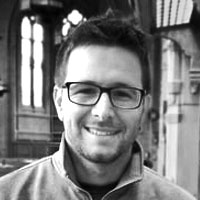
Dr. Felipe Ferrão
Research Assistant Scientist
UF/IFAS Horticultural Sciences
Blueberry Breeding, Statistical, Quantitative Genetics, Genomics
Dr. Ferrão is a quantitative geneticist for UF/IFAS Horticultural Sciences. His research is interested in incorporating statistics, genomics, metabolomics, and bioinformatics with the goal of understanding the genetic architecture of complex traits. In particular, he has focused his research on linkage and QTL mapping studies, genetic association, genomic prediction, and quantitative genetics applied to polyploid species. Most of his activities involve perennial outcrossing crops, in special, coffee and blueberry.